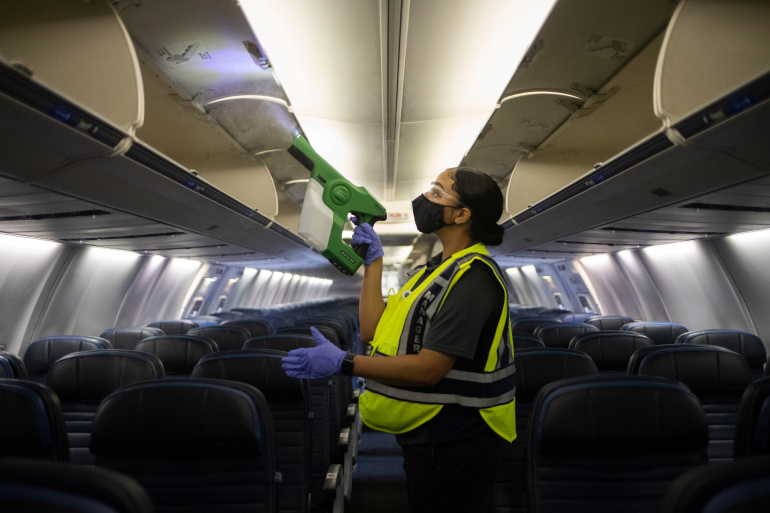Global airlines are calling for airport coronavirus tests for all departing international passengers to replace the quarantines they blame for exacerbating the travel slump.
Rapid and affordable antigen tests that look for pieces of the coronavirus in swab samples from people’s noses and throats – and that can be administered by non-medical staff – are expected to become available in the “coming weeks” and should be rolled out under globally agreed standards, the head of the International Air Transport Association (IATA) said during an online media briefing.
“We don’t see any alternative solution that would be less challenging or more effective,” IATA Director General Alexandre de Juniac said.
Airlines hammered by the coronavirus pandemic are pressing governments to embrace alternatives to blanket travel restrictions that are still hampering a traffic recovery – and that are now tightening again in Europe amid resurgent case numbers.
With rapid antigen tests becoming available for as little as $7 each, de Juniac said, airlines will push for their use to be endorsed by the International Civil Aviation Organization, the United Nations agency that oversees global aviation rules.
IATA believes production could be quickly increased to millions per day and the tests phased in between late October and the end of the year, “helping to save a part of the winter season”, de Juniac told Reuters television.
A global agreement is needed to ensure predeparture test results are uniformly accepted by the destination country, he said, adding, “It will also boost passenger confidence that everybody on the aircraft has been tested.”
Evolving position
The airlines’ position has evolved alongside testing technology. IATA argued a month ago for new rules to recognise laboratory-based polymerase chain reaction (PCR) tests – which also look for virus fragments – conducted 48 hours before departure.
Last-minute airport screening is more effective because it “seals off the system” against forged certificates or infections contracted just before travel, de Juniac said on Tuesday.
Antigen tests are faster but less sensitive and therefore slightly more likely to miss positive cases than the PCR alternatives, although the accuracy gap has narrowed.
Among companies marketing the new tests, German diagnostics specialist Qiagen said earlier this month that it planned to launch a COVID-19 antigen test that provided results in 15 minutes and could be deployed in airports or stadiums.
Source: Al Jazeera

